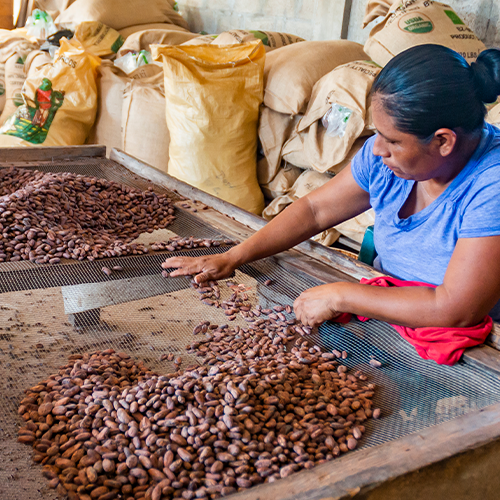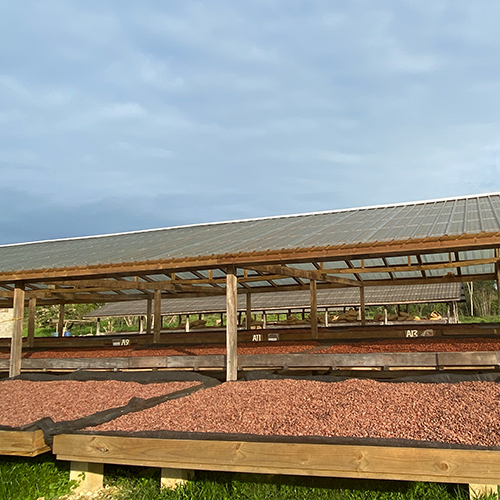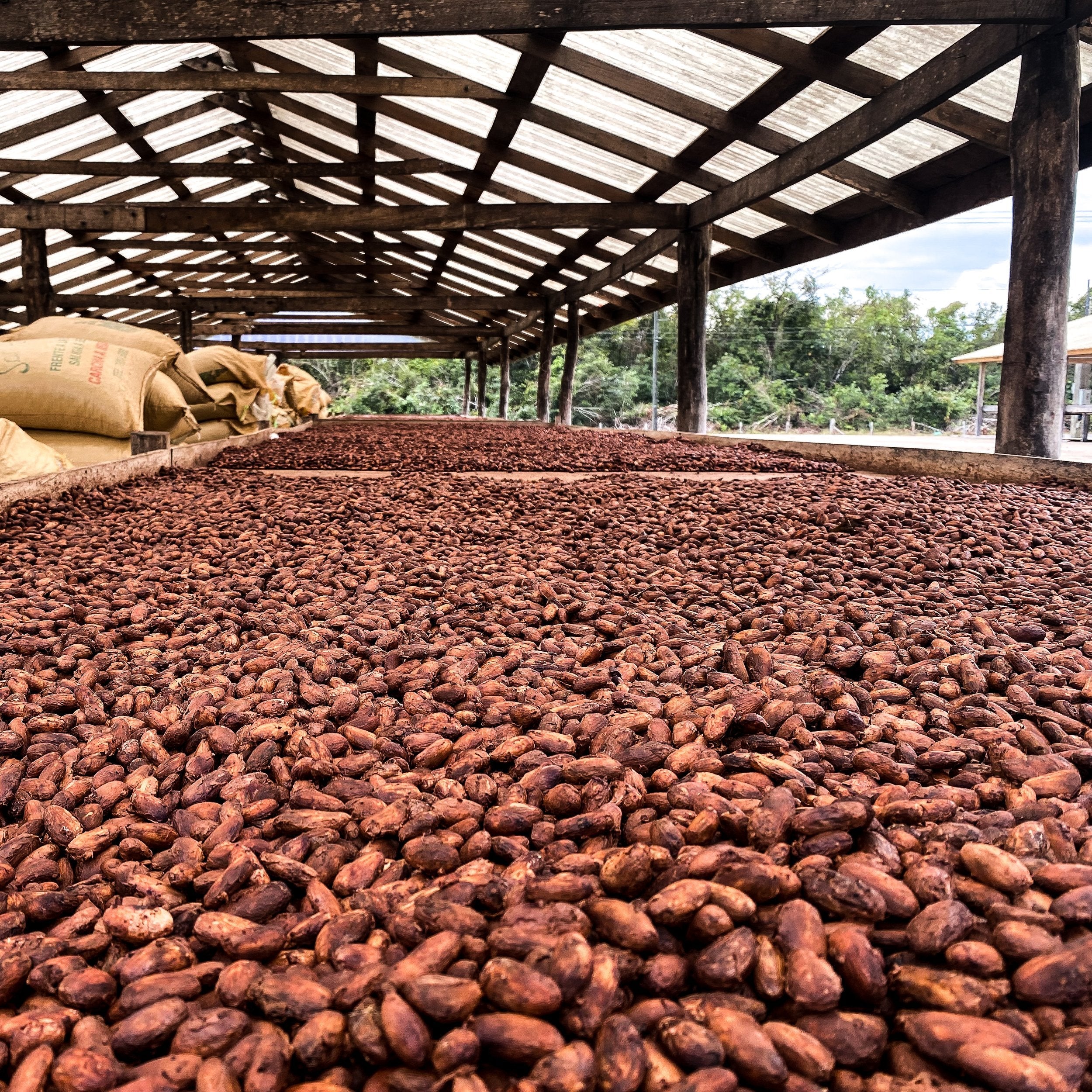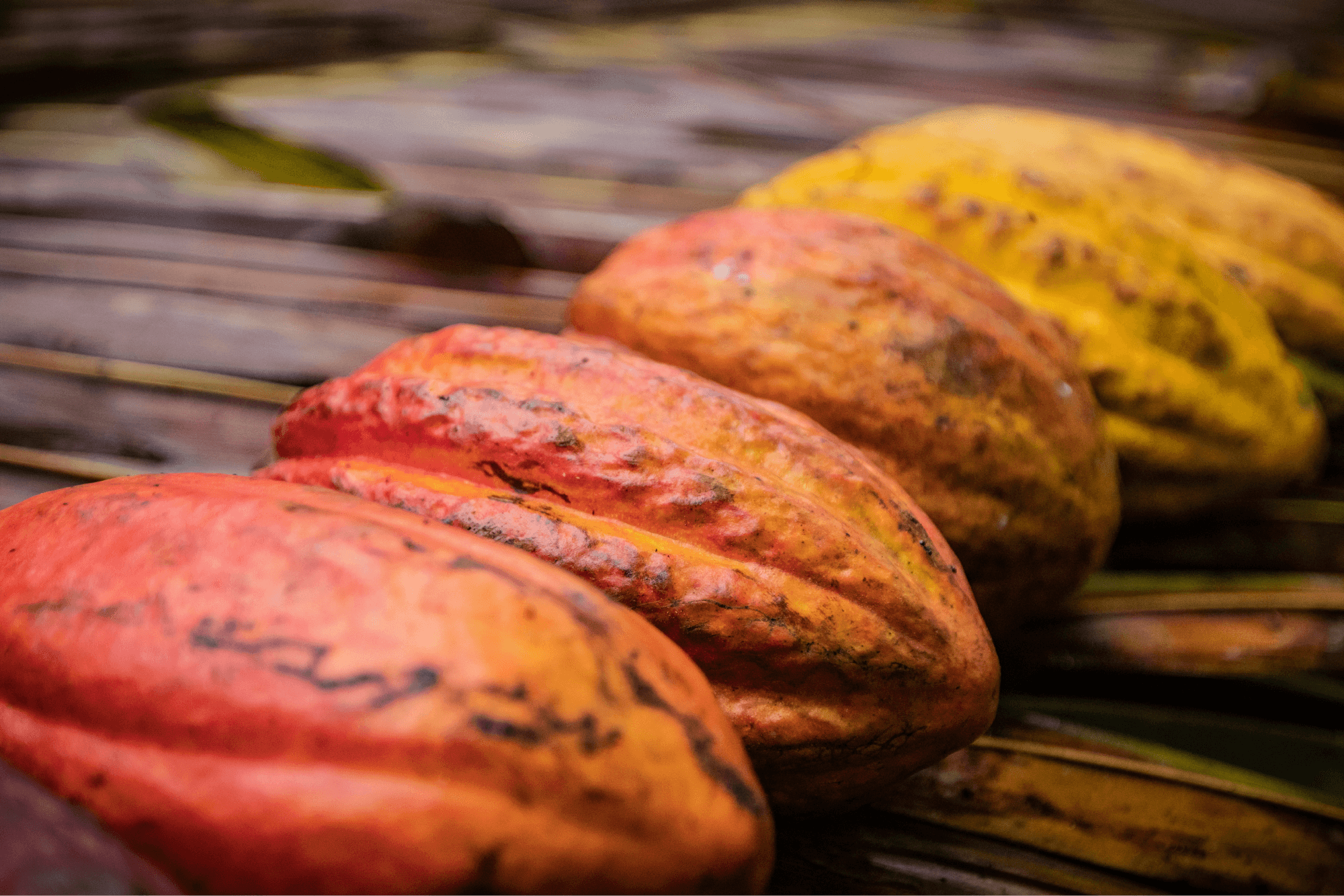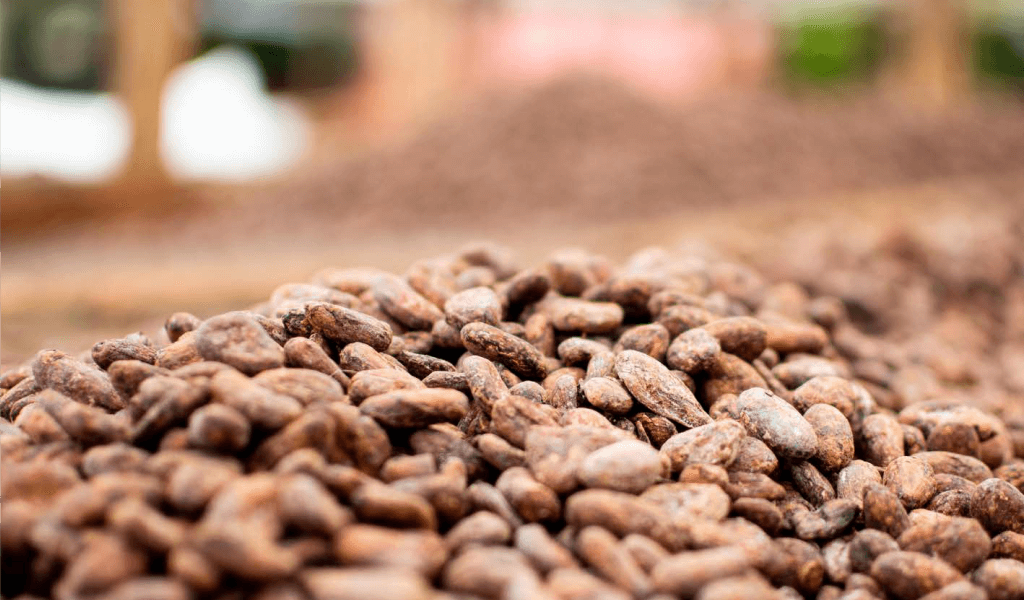Belize
MAYA MOUNTAIN
Flagship, award-winning, organic cacao with balanced fruit and chocolate notes.
2024 Data - Product
Quality: Ultra Premium
Flavor: Honey, Pineapple, Raisin
Fermentations Style: Box
Drying Style: Raised beds with a roof, patio & solar dryers
Quality Practices: Temperature monitoring during fermentation, cut tests during fermentation
Hand Sorting: Yes
Certifications: Organic
Number of awards in 2024: 12
2024 Data - Planet
Crops that are used for intercropping: Banana, Plantain, Coconut, Avocado, Cashew, Coffee
Environmental practices: 100% of the producers registered in the MMC network practices sustainable organic farming. Fruit tree intercropping is practiced in all cacao farms. Producers within the network must adhere to the organic policy of MMC and Mayacert who is the certifier. This is a means for both MMC and the producers to contribute to a sustainable environment as no slash-and-burn and chemical usage is authorized. Creating habitat for animals within the farming areas is another key part our farming practices
Organic hectares cultivated: 463.10
Average percent of shade of cacao farms: 30%
Distance of producer to facility (km): 22.9
Distance to port (km): 238.9
Ocean freight CO2kgs per MT (US): 48
Ocean Freight CO2kgs per MT (EU): 135
2024 Data - People
Community-focused initiatives: We provided small monetary and in kind donations to schools and community events. Farmers affected by wildfires were supported with small cash donations.
Trainings conducted: Farm productivity and maintenance (pruning assistance), ecological practices, cacao quality, organic certification
Producers purchased from: 418
Female producers: 41
Producers under 35 y/o: 80
Organic producers: 418
Total # of producers trained: 418
Total # of female producers trained: 44
Total # of producers under 35y/o trained: 80
Full time employees: 9
Full time female employees: 2
Part time employees: 11
Part time female employees: 2
Average farm size (ha): 1.03
Average sales per producer (dry kg): 177
Average annual cacao revenue per producer: $837.48
Founded in 2010, this centralized fermentation put Belize on the craft chocolate map as a pioneer in the social enterprise model.
The country’s first exporter of high-quality, centrally fermented cacao to the U.S. Today, they work with 420 smallholder farming families in the Toledo and South Stann Creek districts. Most of these producers are Q’eqchi’ and Mopan Maya, for whom cacao production goes back generations.
Maya Mountain Cacao’s 100% Belizean Maya team processes all cacao at a centralized facility where three unique stages of sun drying create optimal flavor. Maya Mountain Cacao is focused on building long-term, transparent partnerships with farmers and producing uniquely delicious cacao that supports the communities of southern Belize.
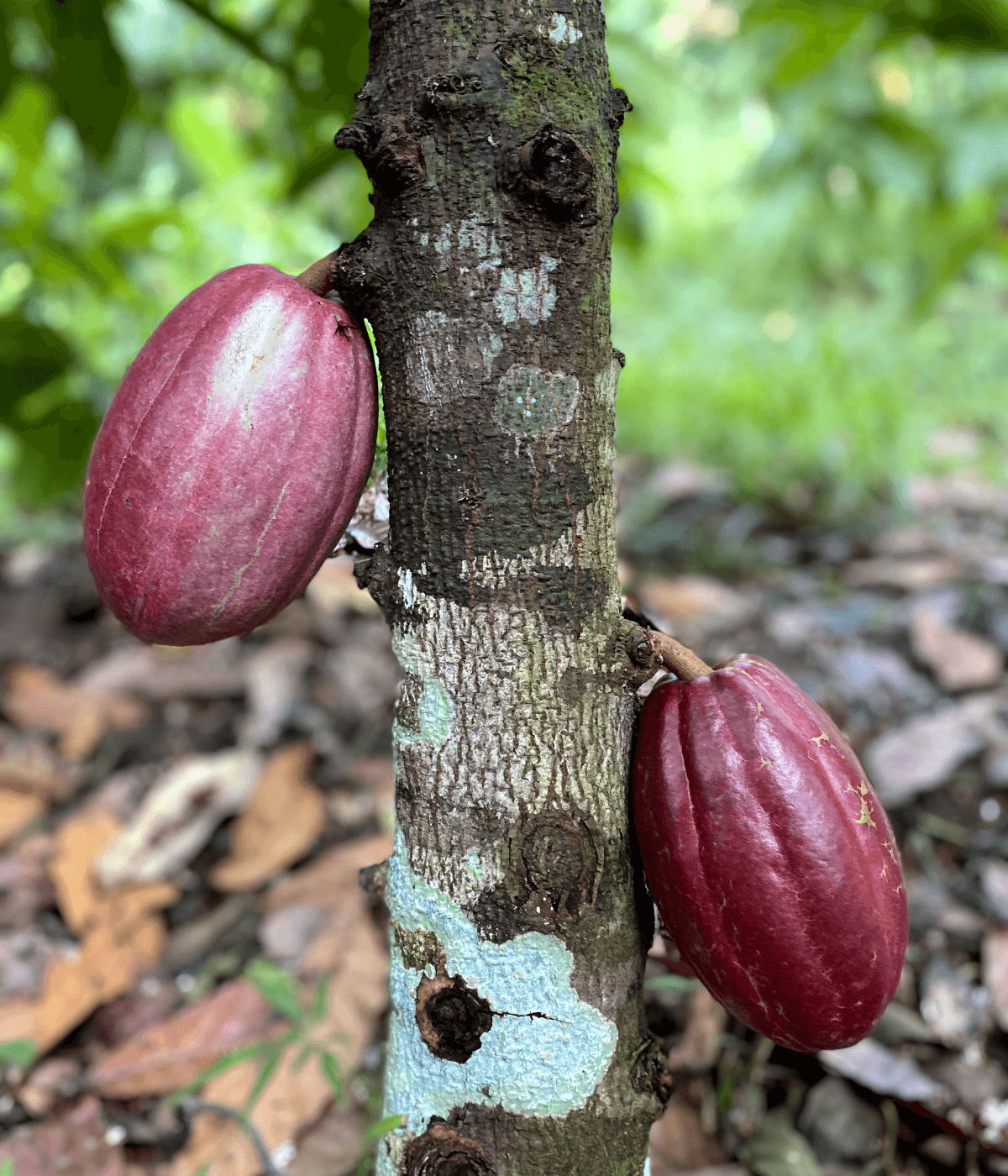
TERROIR
Belize’s rich history of cacao production, combined with the country’s stunning limestone karstic landscape and lowland tropical rainforest, created the perfect storm of flavor that was waiting to be fine-tuned through centralized post-harvest. While ancient criollo can still be found deep in Belize’s nature reserves and small private plots, the vast majority of cacao cultivated by the smallholder Maya farmers in the south are Amelonado-dominant hybrids and other Upper Amazon Forastero hybrids. Maya Mountain Cacao is intercropped with hardwood trees, banana, mango, avocado, and coconut.
Founded in 2010, this centralized fermentation put Belize on the craft chocolate map as a pioneer in the social enterprise model.
The country’s first exporter of high-quality, centrally fermented cacao to the U.S. Today, they work with 420 smallholder farming families in the Toledo and South Stann Creek districts. Most of these producers are Q’eqchi’ and Mopan Maya, for whom cacao production goes back generations.
Maya Mountain Cacao’s 100% Belizean Maya team processes all cacao at a centralized facility where three unique stages of sun drying create optimal flavor. Maya Mountain Cacao is focused on building long-term, transparent partnerships with farmers and producing uniquely delicious cacao that supports the communities of southern Belize.

TERROIR
Belize’s rich history of cacao production, combined with the country’s stunning limestone karstic landscape and lowland tropical rainforest, created the perfect storm of flavor that was waiting to be fine-tuned through centralized post-harvest. While ancient criollo can still be found deep in Belize’s nature reserves and small private plots, the vast majority of cacao cultivated by the smallholder Maya farmers in the south are Amelonado-dominant hybrids and other Upper Amazon Forastero hybrids. Maya Mountain Cacao is intercropped with hardwood trees, banana, mango, avocado, and coconut.
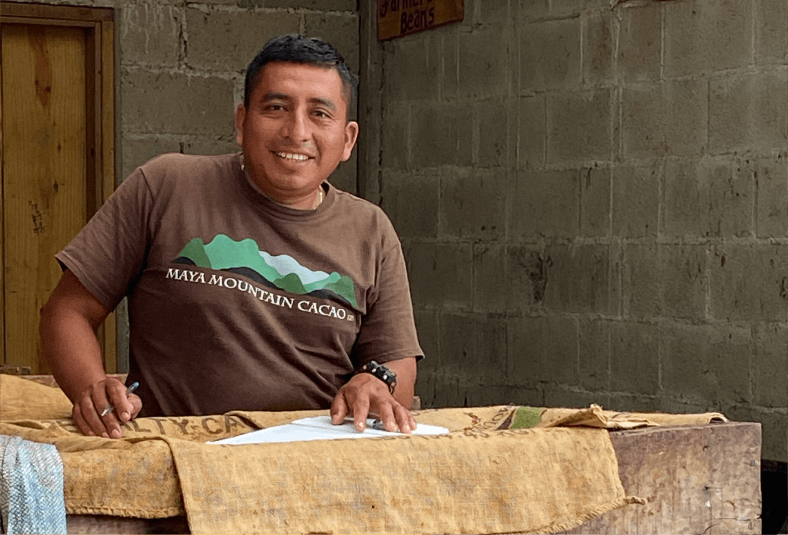
Notable Awards
2022 Academy of Chocolate Gold
Manuel Cucul smiling with fermenting cacao

